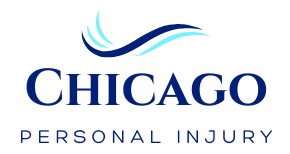A car accident can happen in an instant—whether you’re driving on the Dan Ryan Expressway, merging onto Lake Shore Drive, or navigating busy intersections downtown. In the chaos that follows, it’s easy to feel overwhelmed and unsure of what steps to take. Knowing exactly what to do after a crash not only protects your health but also your legal rights if you need to file a claim.
At Chicago Personal Injury, we’ve helped countless accident victims across the city. Here’s a step-by-step guide on what to do after a car accident in Chicago, IL.
Step 1: Prioritize Safety and Call 911
Your first priority should always be safety. Move vehicles out of traffic if possible and check yourself and others for injuries. In Illinois, you’re required to report accidents that cause injury, death, or significant property damage. Dial 911 and request both medical assistance and a police response. The Chicago Police Department will file an official crash report, which becomes critical evidence in your claim.
Step 2: Seek Medical Attention Immediately
Even if you feel “fine,” adrenaline can mask injuries like concussions, whiplash, or internal bleeding. Visit an emergency room or urgent care and follow up with your doctor. Medical documentation is one of the strongest forms of evidence when proving the connection between your injuries and the accident. For trauma resources, you can review University of Illinois Chicago’s health and safety research.
Step 3: Exchange Information
Exchange contact and insurance information with the other driver. Write down license plate numbers, driver’s license details, and vehicle descriptions. If you were struck by a commercial vehicle or rideshare car, also note the company name and any identifying numbers.
Step 4: Document the Scene
Evidence begins at the scene. Use your phone to take photos and videos of:
- Vehicle positions and damage
- Traffic signals, skid marks, and road conditions
- Visible injuries
- Nearby businesses or traffic cameras that may have recorded the crash
The Illinois Department of Transportation recommends drivers document as much as possible after accidents. You can also review IDOT’s crash data portal for safety statistics.
Step 5: Gather Witness Information
If anyone saw the accident, ask for their names and contact information. Independent witnesses can provide valuable testimony that supports your version of events, especially in disputed liability cases.
Step 6: Notify Your Insurance Company
You must report the accident to your insurer, but be cautious. Provide only basic facts (time, date, location) and avoid recorded statements until you’ve spoken with an attorney. Insurance adjusters often look for ways to minimize payouts, and even small comments can be used against you later.
Step 7: Don’t Admit Fault
In the aftermath of a crash, it’s natural to feel apologetic—but avoid admitting fault at the scene or to the insurance company. Illinois uses a modified comparative negligence rule, which means your compensation can be reduced if you’re partially responsible. Let investigators and your attorney determine liability based on evidence.
Step 8: Track Medical Expenses and Missed Work
Keep a folder of hospital bills, prescription costs, physical therapy invoices, and any documentation of lost wages. This record helps your lawyer calculate both economic and non-economic damages when negotiating with insurers.
Step 9: Contact a Chicago Car Accident Lawyer
Perhaps the most important step is seeking legal help. An experienced car accident lawyer in Chicago knows how to handle insurance adjusters, gather evidence, and pursue maximum compensation for your injuries. At Chicago Personal Injury, we offer free consultations and work on a contingency basis—meaning you pay nothing unless we win.
Damages You May Be Entitled To
If your case leads to a personal injury claim or lawsuit, you may be eligible to recover compensation for:
- Medical expenses (emergency care, surgery, rehab, future treatment)
- Lost income and reduced earning ability
- Pain and suffering
- Emotional distress or PTSD
- Vehicle repair or replacement
- Wrongful death damages if a loved one was killed in the accident
Statute of Limitations in Illinois
Under 735 ILCS 5/13-202, you generally have two years from the date of the accident to file a personal injury lawsuit in Illinois. Claims against government entities, like the City of Chicago, may have a shorter one-year deadline. Missing these deadlines could bar you from recovering any compensation, so it’s crucial to act quickly.
Why Choose Chicago Personal Injury?
We understand the unique challenges of handling accidents in Chicago. From multi-car pileups on I-90 to rideshare collisions downtown, our attorneys know the tactics insurers use to deny or delay claims. When you choose us, you get:
- Direct access to your attorney
- A team that investigates quickly and aggressively
- No upfront fees—you pay only if we win
- 24/7 availability for when you need answers most
Contact a Chicago Car Accident Lawyer Today
If you or a loved one has been injured in a car accident, you don’t have to go through it alone. Contact Chicago Personal Injury today to schedule your free, no-obligation case review. We’re open 24/7 and ready to fight for the justice and compensation you deserve.
